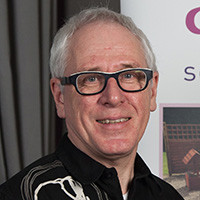Event summary
Date
Start Time
End Time
The d Hotel,, Lagavooren, Drogheda, Louth
Outcome studies in autism spectrum disorders have focused mainly on more ‘objective’ measures of outcome, such as cognitive and academic functioning, health, employment, living situation, quantitative and qualitative measurements of relationships, and measurements of autistic symptoms. However, Quality of Life (as defined by Schalock, 1990), contains both objective and subjective components (Cummins, 2005; Schalock, 2002). An important subjective component is the general satisfaction of the person and his personal feeling of well-being. This emotional well-being is often treated as synonym for a word that is used more regularly: happiness.
Most studies into the psychological well-being of people with autism have focused primarily on the lack of emotional well-being, i.e. the presence of mental health problems in autism. They have given evidence for an increased risk of mental health problems in autism, especially anxiety and depression. But what if we would take a more positive approach and focus not on the prevention of negative feelings but rather on the initiation of positive feelings? In this presentation, we will give an outline of different strategies that aim at increasing happiness and emotional well-being in people with autism:
- Avoiding to force people with autism into a neurotypical concept of happiness: happiness is a personal and subjective construct and the things that make a person with autism happy do not necessarily have to be a copy of what makes a neurotypical person happy;
- Support, in terms of quantity (how much), content (for what) as well as style(how), should be adapted to the needs of the person with autism: ‘goodness of fit’ is more important than how much support is offered;
- Not the highest level of functioning, but one that gives life a meaning for people with autism. Being proud of what you can and what you do (having success in life) is more important than higher scores on all kind of objective measures of Quality of Life;
- Giving people with autism responsibilities and challenges and avoiding overprotecting them ‘because of their autism’, so that we do not create learned helplessness.
- Moving from a neurodiversity concept towards neuroharmony.
Location
The d Hotel,
The d Hotel, Scotch Hall Shopping Centre, Marsh Road
Lagavooren, Drogheda
Louth
Get Directions

Dr Peter Vermeulen
Event summary
Date
Start Time
End Time
The d Hotel, , Lagavooren, Drogheda , Louth
